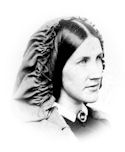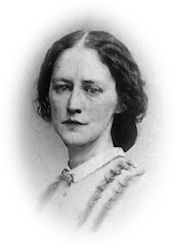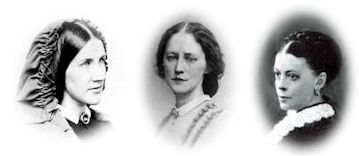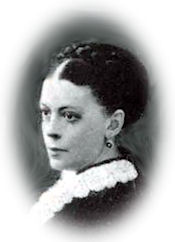The boxes of home supplies now had Portsmouth Grove Hospital as their principal destination. The following is one of the letters in return for supplies:
The games, as well as the slates, which came in the boxes and barrels, are a great delight. I have just been over to see Fitch and set him up at a solitaire board. He was all over smiles, and pegging away with his game in bed.
With another gift of tools, the boys in Ward 2o knocked up a nice little bagatelle board with glass balls and a cambric cover. Ward 6 went over to inspect and imitate. They came back disgusted; “would scorn to play on such a thing; would have a board on which a lady could dance a hornpipe, if she pleased.” Highly improbable that any one would please to do that, but I promised them that if they would make a first-rate board, they should have all that was necessary. So they went to work, and the result was a beauty. The table is seven or eight feet long, covered with scarlet flannel, and with turned balls and walnut cups, and the men of the ward have enjoyed every minute of its existence for the past month. I have never gone in when there hasn’t been a crowd round the table pushing balls or keeping count, and I really think that the health of the ward has improved under the treatment.
Money spent in lemons for bronchitis, oranges for fever patients, mittens and socks for “convalescents” (who have to go on guard in puddles of snow-water) and in games and tools for wretched, bored, half-sick, half-well, wholly demoralized men, may not seem a great investment to the givers; would not seem so to me, if I did not live in a general hospital, and know where Government munificence stops and where private beneficence may to advantage begin.
The meals in our hospital mess-hall are nicely served and well cooked. At the beating of the drum the “convalescents” form in line, and march, by wards, into the long hall, where three lines of tables, each 250 feet long, are set. Last night, when we inspected the supper, there were shining tins up and down the tables with a very large portion of rice and molasses, hot coffee, and plenty of bread for each man, and many little pots of butter and jam came in under the Braves’ arms, out of their home boxes, to help garnish the tea.
This morning I was invited by a soldier to join him in a banquet over a box from home; “and all I want beside,” observed he, “is a little gin.” “It is very lucky for you that there was none,” was my answer, “or the whole box would have been confiscated.” “Confiscated, indeed!” returned the Brave; “I should like to see that thing done. I’m none of your cream and chocolate men. I’d carry the case up to Abraham himself! ”
The other day Miss — was washing a boy’s face very gently. “Oh!” said he, “that reminds me of home—” (Miss — highly gratified); “that’s like my sister; she often did that for me. My eyes! wasn’t she a rough one! She’d take off dirt, and skin too, but she’d get the dirt off.”








